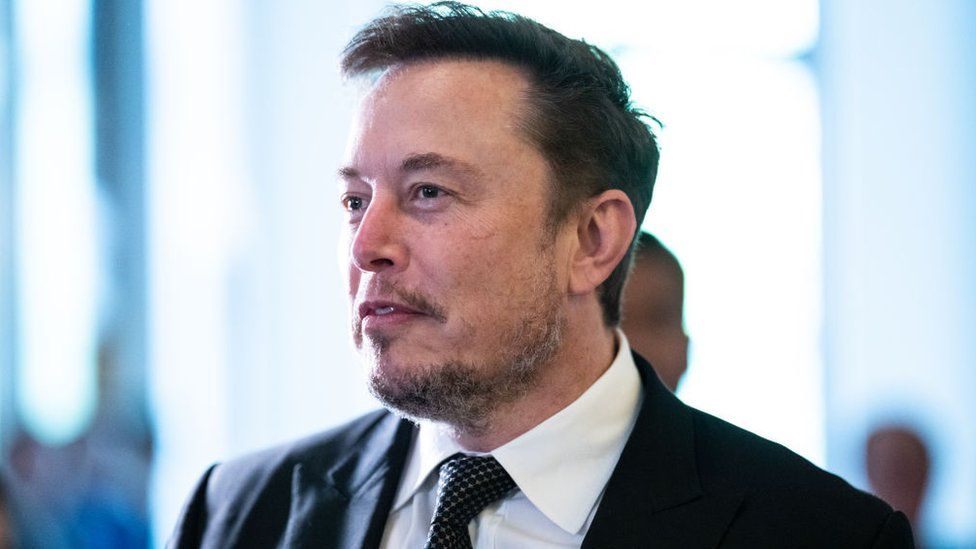Taiwan tells Elon Musk it is 'not for sale'
 Image source, Getty Images
Image source, Getty ImagesTaiwan has told billionaire Elon Musk it is "not for sale" after he said the island was a part of China.
"Listen up, Taiwan is not part of the PRC [People's Republic of China] & certainly not for sale!," foreign minister Joseph Wu said on Mr Musk's X.
At a business summit this week, Mr Musk compared Taiwan to Hawaii, calling it an "integral part" of China.
Beijing claims self-governed Taiwan and tensions between the two have ratcheted up over the past year.
Just this week, China conducted air and naval drills around Taiwan, in what has become a routine show of military might around the island. Taiwan said that it had detected more than 40 Chinese military aircraft and about 10 ships in its waters.
This is not the first time that Mr Musk, who has business interests in China, has angered Taiwan's government with his comments. In October, he suggested that tensions between Beijing and Taipei could be resolved by giving China some control over Taiwan.
He said then in an interview with the Financial Times that he believed the two governments could reach a "reasonably palatable" arrangement. China's ambassador to the US had praised Mr Musk but his Taiwanese counterpart said something similar to Mr Wu – that freedom is "not for sale".
Mr Wu also posted on X: "Hope Elon Musk can also ask the CCP [Chinese Community Party] to open X to its people." Mr Musk's micro-blogging platform X, formerly known as Twitter, is banned in China.
Mr Wu had previously said that China's military drills were intended to influence Taiwan's elections in January.
"The PRC [People's Republic of China] has made it clear it wants to shape Taiwan's coming national election. Well, it's up to our citizens to decide, not the bully next door," he wrote on X.
Mr Musk's electric car maker Tesla has a large manufacturing plant in Shanghai and he most recently visited the country in May. He met top Chinese officials and the Chinese foreign ministry said that Tesla was willing to expand its business in the country.
His visit drew much attention given relations between China and the US have plummeted in recent years. Despite resuming high-level dialogue, the two countries still disagree on a range of issues, including Taiwan, which has emerged as one of the biggest flashpoints between them. The US has long been Taipei's chief ally.
-
-
Published6 April
-
